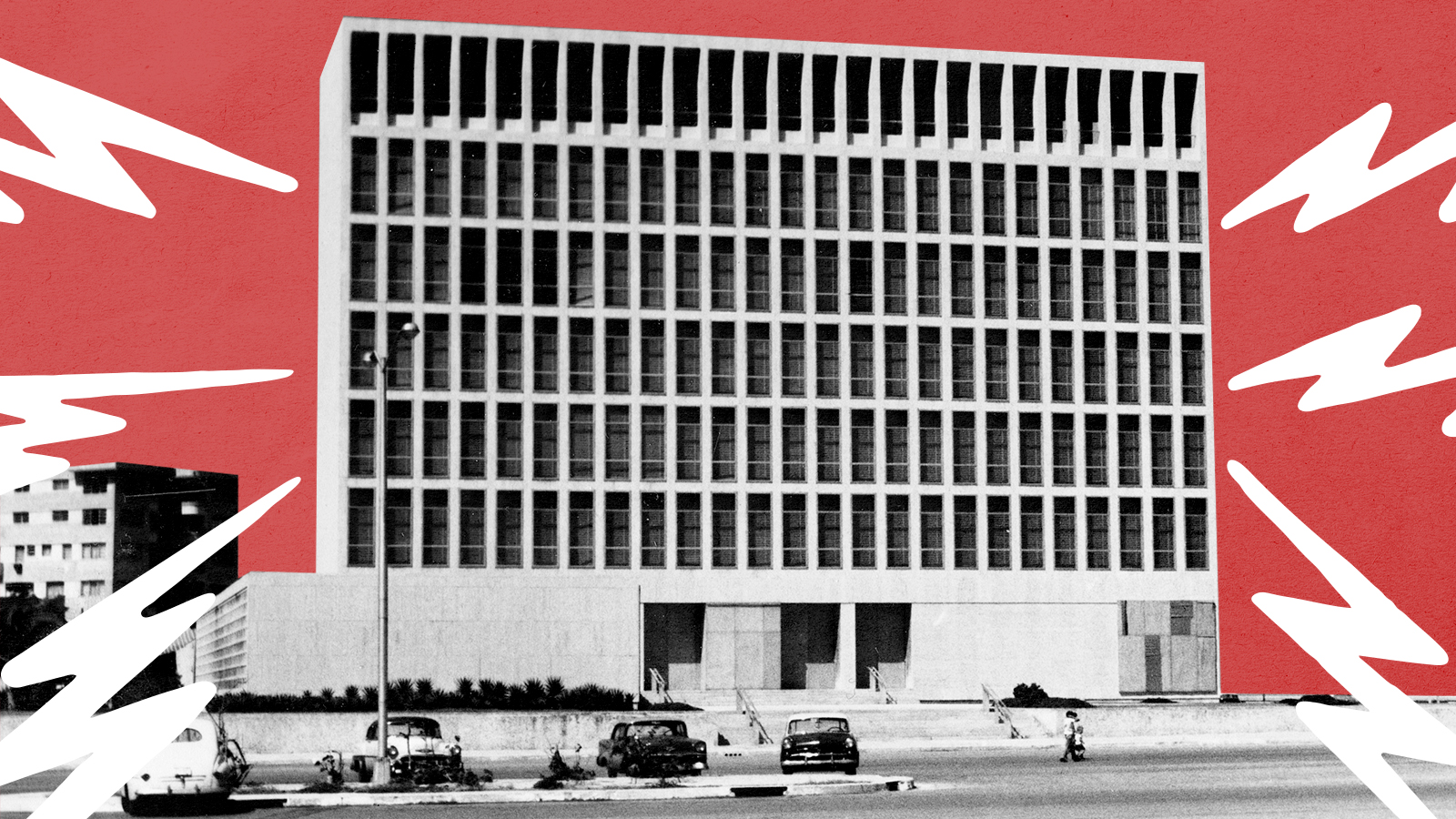A fake Russian ray gun destroyed the media's BS detector


A free daily email with the biggest news stories of the day – and the best features from TheWeek.com
You are now subscribed
Your newsletter sign-up was successful
For years now there has been a bubbling current of worry about something called "Havana syndrome." It was initially reported among U.S. embassy staff in Cuba (thus the name) in 2016, with symptoms including headache, tinnitus, vertigo, and confusion. Many speculated it was the result of a "directed-energy weapon" the Russians had somehow built in secret.
But the CIA recently concluded Havana syndrome didn't come from any foreign power. This should come as no surprise. The symptoms were vague, and the proposed weapon was scientifically implausible. As Dr. Adam Gaffney argued back in November, it had all the signs of a classic "mass sociogenic illness." Importantly, this is not to say that the symptoms were fake — rather, the idea is people with ordinary ailments come to believe they're caused by some external (and often spooky) source. The resulting stress and fear causes more people to experience symptoms, and the "syndrome" spreads. Similar cases have been documented for centuries.
So that's no shade on the diplomats. Anybody could fall for mass sociogenic illness in the right context. But there is some shame on the great many journalists and members of Congress who stoked inflammatory, implausible claims about magic Russian ray guns.
The Week
Escape your echo chamber. Get the facts behind the news, plus analysis from multiple perspectives.

Sign up for The Week's Free Newsletters
From our morning news briefing to a weekly Good News Newsletter, get the best of The Week delivered directly to your inbox.
From our morning news briefing to a weekly Good News Newsletter, get the best of The Week delivered directly to your inbox.
A very brief sample: Ana Swanson, Edward Wong, and Julian E. Barnes reported in October 2020 at The New York Times that several diplomats in China were likely victims of Havana syndrome. Ken Dilanian, Andrea Mitchell, and Brenda Breslauer reported in December 2020 at NBC News that a CIA officer who worked in Moscow could be a victim as well. (Dilanian, incidentally, was one of the biggest syndrome hysterics, but he also helped break the story of the new CIA report, probably because of his very friendly history with the agency.) A National Academy of Sciences report that argued there could be a scientific basis for a secret microwave gun got respectful coverage from CNN, NBC, ABC, The New York Times, Axios, The Guardian, and countless other outlets.
Even after BuzzFeed News obtained a State Department report in September 2021 that dismissed the ray gun theory as garbage and named sociogenic illness as the likely culprit, many stuck to their guns. In October, Politico repeated claims from anonymous officials supposedly "turning up new evidence that the symptoms are the result of directed-energy attacks." "I always suspected that these illnesses were the product of deliberate attacks and that the Russian government was behind them," wrote Julia Ioffe at Puck the same month. Most astonishingly, the panic led Congress to pass a bill paying for treatment resulting from the syndrome — unanimously.
Now, errors are an occupational hazard in journalism, and I've made my fair share over the years. But the idea of devious Russian spies inventing James Bond-esque spy tech that somehow escaped the notice or possession of the U.S. security apparatus and the scientific establishment? That should have raised the hackles of anyone with a functioning BS detector, which, last I checked, journalists are supposed to have.
A free daily email with the biggest news stories of the day – and the best features from TheWeek.com
Ryan Cooper is a national correspondent at TheWeek.com. His work has appeared in the Washington Monthly, The New Republic, and the Washington Post.
-
 Political cartoons for February 20
Political cartoons for February 20Cartoons Friday’s political cartoons include just the ice, winter games, and more
-
 Sepsis ‘breakthrough’: the world’s first targeted treatment?
Sepsis ‘breakthrough’: the world’s first targeted treatment?The Explainer New drug could reverse effects of sepsis, rather than trying to treat infection with antibiotics
-
 James Van Der Beek obituary: fresh-faced Dawson’s Creek star
James Van Der Beek obituary: fresh-faced Dawson’s Creek starIn The Spotlight Van Der Beek fronted one of the most successful teen dramas of the 90s – but his Dawson fame proved a double-edged sword
-
 Big-time money squabbles: the conflict over California’s proposed billionaire tax
Big-time money squabbles: the conflict over California’s proposed billionaire taxTalking Points Californians worth more than $1.1 billion would pay a one-time 5% tax
-
 Did Alex Pretti’s killing open a GOP rift on guns?
Did Alex Pretti’s killing open a GOP rift on guns?Talking Points Second Amendment groups push back on the White House narrative
-
 Washington grapples with ICE’s growing footprint — and future
Washington grapples with ICE’s growing footprint — and futureTALKING POINTS The deadly provocations of federal officers in Minnesota have put ICE back in the national spotlight
-
 Trump’s Greenland ambitions push NATO to the edge
Trump’s Greenland ambitions push NATO to the edgeTalking Points The military alliance is facing its worst-ever crisis
-
 Why is Trump threatening defense firms?
Why is Trump threatening defense firms?Talking Points CEO pay and stock buybacks will be restricted
-
 The billionaires’ wealth tax: a catastrophe for California?
The billionaires’ wealth tax: a catastrophe for California?Talking Point Peter Thiel and Larry Page preparing to change state residency
-
 Trump considers giving Ukraine a security guarantee
Trump considers giving Ukraine a security guaranteeTalking Points Zelenskyy says it is a requirement for peace. Will Putin go along?
-
 Bari Weiss’ ‘60 Minutes’ scandal is about more than one report
Bari Weiss’ ‘60 Minutes’ scandal is about more than one reportIN THE SPOTLIGHT By blocking an approved segment on a controversial prison holding US deportees in El Salvador, the editor-in-chief of CBS News has become the main story
